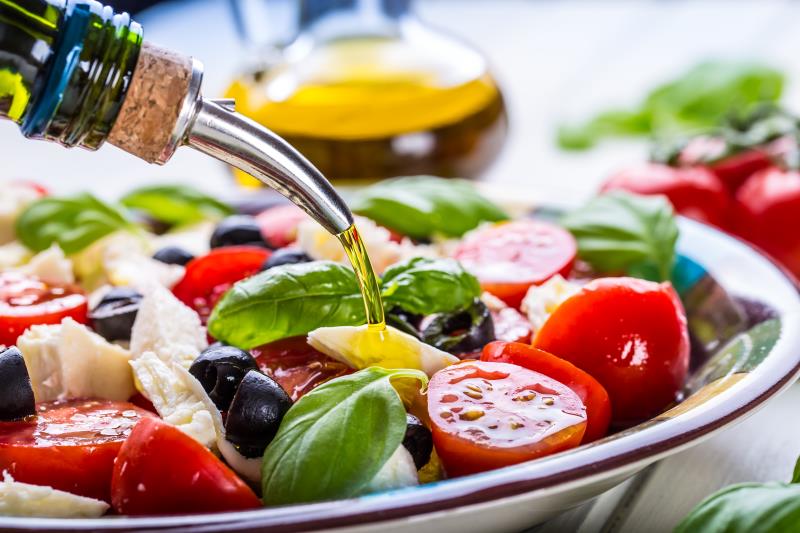
Regular consumption of olive oil appears to reduce the risk of coronary heart disease (CHD) and total cardiovascular disease (CVD) in adults, according to a US study involving two large prospective cohorts of men and women. In addition, use of olive oil to replace margarine, butter, mayonnaise and dairy fat is associated with a lower risk of CHD and CVD.
A total of 9,797 incident cases of CVD, including 6,034 CHD cases and 3,802 stroke cases, were recorded during 24 years of follow-up.
Participants with higher olive oil intake (>0.5 tablespoon/day or >7 g/day) had 14-percent lower risk of CVD (pooled hazard ratio [HR], 0.86, 95 percent confidence interval [CI], 0.79–0.94) and 18-percent lower risk of CHD (pooled HR, 0.82, 95 percent CI, 0.73–0.91) than nonconsumers after adjusting for major diet and lifestyle factors. No significant associations were seen for total or ischaemic stroke.
Substitution of 5 g/day of margarine, butter, mayonnaise or dairy fat with the equivalent amount of olive oil led to a 5–7-percent reduced risk of total CVD and CHD. No significant associations were seen when comparing olive oil with other plant oils combined.
A sub-analysis also revealed that higher olive oil intake correlated with lower levels of circulating inflammatory biomarkers and a better lipid profile.
Participants in this study included 61,181 women from the Nurses’ Health Study (1990 to 2014) and 31,797 men from the Health Professionals Follow-up Study (1990 to 2014) who were free of cancer, heart disease and stroke at baseline. Food frequency questionnaires were used at baseline and every 4 years to evaluate the participants’ diet. Cox proportional hazards regressions were utilized to estimate HRs and 95 percent CIs.